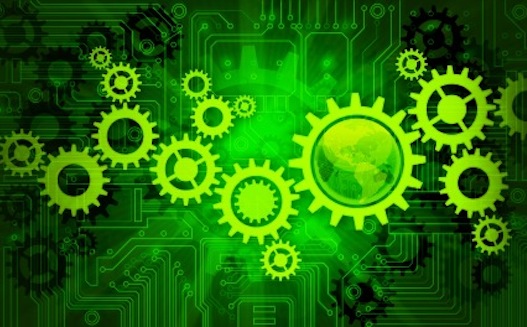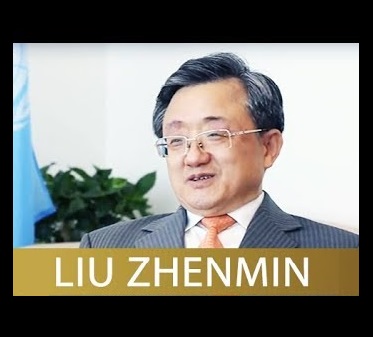
Efforts by the US and EU to stem China’s dominance in green technologies risk stalling the fight against global warming, according to the veteran diplomat tasked by Xi Jinping to represent China on climate issues.
Liu Zhenmin, appointed in January as China’s Special Envoy for Climate Change, this month heads for his first in-person meetings in the US since taking the role. Those talks come at a crucial juncture for international cooperation — with skepticism about pledges to phase out fossil fuels, continued wrangling over funding for developing nations, and rising trade protectionism targeted at clean energy supply chains.
US Treasury Secretary Janet Yellen has issued warnings about China’s alleged “overcapacity” and record exports of competitively priced solar equipment and lithium-ion batteries, while the European Union has launched “probes” into China’s clean energy and electric vehicles. These US and EU actions have been criticized by China as part of a pattern of Western protectionism.
“We need to maintain low costs, otherwise nobody is going to be able to afford the energy transition,” Liu said in an interview with Bloomberg Television. “What I’m worried about is if the US and European Union continue to insist on that approach, it would result in a delay in the substitution of fossil fuels by renewables globally.”
Relying on technology made outside China could lift global energy transition costs by as much as $6 trillion, or 20 percent, Liu said, citing a Wood Mackenzie analysis. Other countries can instead take advantage of the boom among Chinese companies in production of clean energy equipment, batteries and electric vehicles, which has dramatically lowered costs.
“After more than a decade of their hard work, now we have cheaper wind and solar products, which make it more affordable to start the energy transition,” he said. “I think that this is good for both China and the world.”
Liu, who will meet in Washington D.C. May 8 to 10 with US counterpart John Podesta, is optimistic over China’s ability to meet China’s targets to peak carbon emissions by 2030 and hit net zero by 2060. He also says he believes the US and China as able to cooperate to continue to lead global action.
There’s potential to help other nations develop their own clean energy supply chains, including by Chinese companies investing in joint ventures, according to Liu. Already China-based producers are building solar plants in the US, battery factories in Hungary and electric vehicle assembly lines in Thailand.
“Between China and the US, I hope we have more cooperative enterprises,” he said. “I think this joint design, this joint manufacturing, I think it will be good to remove all these worries.”

Liu, 68, had a thirty-year career in China’s Ministry of Foreign Affairs and served as vice minister for foreign affairs from from 2017 to 2022, when he took up the post of Under Secretary-General for the United Nations Department of Economic and Social Affairs . He is known as a skilled diplomat who’s well-versed in climate issues — he was involved in the Kyoto Protocol and Paris Agreement climate negotiations. He is a Peking University law-school graduate and fluent in English.
Clean energy sources could eventually account for more than 80 percent of China’s power mix, Liu said. Some regions are now requiring solar and wind farms to curtail generation at certain times to ensure power infrastructure isn’t overloaded, the issue is another climate challenge that China can quickly address, according to Liu. “We will have to transform and upgrade the national grid,” he said. “It will not take a decade, it will take a few years.”
Source: Edited extract from Rigzone, May 2, 2024. [Via Bloomberg]. https://www.rigzone.com/news/wire/pushback_against_chinese_green_tech_risks_stalling_transition_china_envoy-02-may-2024-176605-article/